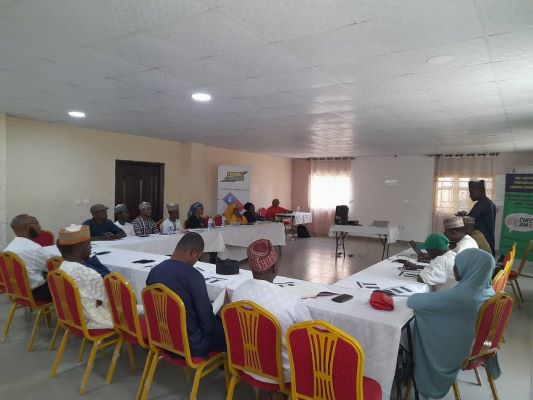An NGO, the Social, Behavioral, and Communication Change Officer of Breakthrough Action Nigeria (BA-N), Nura Faggo, has called on journalists to shift their focus from merely reporting statistics during disease outbreaks to creating more preventive media content.
Speaking at a two-day meeting aimed at building vaccine champions among media professionals in Bauchi, Faggo emphasized the need for the media to adopt solutions journalism. This approach, he noted, would encourage communities to take preventive measures against health emergencies.
“Health reporters and producers need to focus on measures communities can take to prevent outbreaks such as cholera, diphtheria, mpox, and Lassa fever since these diseases are preventable,” Faggo stated.
He explained that the participants in the workshop aimed to promote key topics to raise awareness and curb the occurrence of outbreaks. He also noted that adopting solutions journalism could foster social and behavioral change among the public by encouraging them to be less dependent on the government.
ALSO READ Study finds older migraine drugs more effective than some newer options
Hadiza Jibrin, Advocacy Capacity Strengthening Officer II of BA-N in Bauchi, discussed findings related to zero-dose children and shared lessons learned. She highlighted that caregiver in four local government areas—Alkaleri, Dambam, Ganjuwa, and Katagum—cited reasons for zero-dose children, including adverse events following immunization (AEFI), lack of spousal permission, and transportation challenges.
“Health workers are expected to communicate key messages to parents about AEFI during antenatal care or immunization sessions, but they often become overwhelmed,” Jibrin explained.
She recounted one case where a father claimed his child became unwell after receiving a vaccine and was asked to purchase medication, which raised concerns among parents about vaccine safety.
Danladi Yakubu, Deputy State Epidemiologist at the Bauchi State Primary Health Care Board, explained that disease outbreaks are categorized into man-made and natural disasters. Bauchi State experiences frequent outbreaks of diphtheria, Lassa fever, yellow fever, cerebral meningitis, cholera, and measles throughout the year.
Yakubu further detailed that the state’s disease calendar indicates the seasonal occurrence of various outbreaks, with cholera peaking between April and August, Lassa fever between September and April, and meningitis primarily occurring from November to June. Measles outbreaks, he noted, are most common between November and April.
Also speaking at the event, Dr. Abdulmajeed Yakubu, BA-N’s Risk Communication and Community Engagement Officer, urged journalists to familiarize themselves with the concept of infodemics. He emphasized the importance of fact-checking reports on disease outbreaks to prevent the spread of misinformation, disinformation, and malinformation, which can erode public trust.
Participants at the meeting discussed potential topics to raise awareness around issues such as adverse events following immunization and spousal permission for vaccines.
BA-N is a USAID-funded development organization working on demand generation for vaccines and health-related awareness.
By Lizzy Carr


